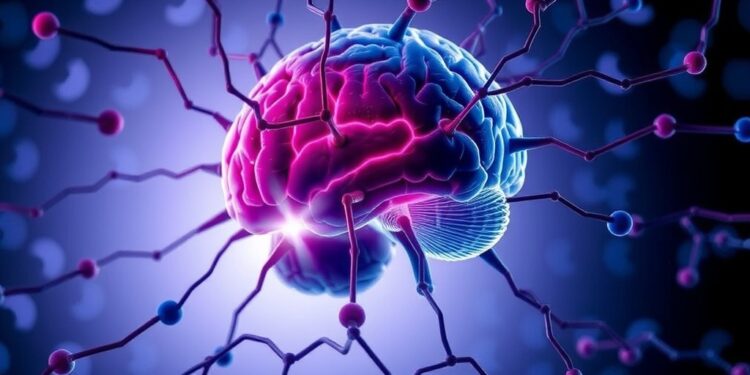
Research Reveals Surprising Insights on Down Syndrome and Alzheimer’s Disease
Recent research has shed a remarkable light on the complex relationship between Down syndrome (DS) and Alzheimer’s disease (AD), revealing nuances previously overlooked in scholarly discussions. Studies indicate that individuals with Down syndrome face an alarming statistic concerning Alzheimer’s, with over 90% lifetime risk of developing dementia, primarily as a consequence of Alzheimer’s pathology. Given the stark realities facing this community, ongoing research is not only vital but also imperative to better understand the underlying mechanisms that differentiate cognitive stability from pathological processes.
The weighty implications of these findings emanate from a thoughtful exploration conducted at the University of Pittsburgh’s Swanson School of Engineering. Their research focuses on identifying why certain individuals with Down syndrome exhibit resilience against the expected cognitive decline associated with Alzheimer’s disease, while others do not. This endeavor holds immense promise, potentially leading to actionable insights not just for those in the DS community but also for broader dementia research.
A particularly intriguing case arises from a publication titled “A Neuropathology Case Report of a Woman with Down Syndrome who Remained Cognitively Stable: Implications for Resilience to Neuropathology.” The publication appears in the esteemed journal Alzheimer’s & Dementia, serving to spotlight the fascinating variability in Alzheimer’s disease progression among people with Down syndrome. At the heart of this publication is a poignant narrative surrounding a woman who participated in the Alzheimer Biomarker Consortium – Down Syndrome Research Study, remarkably maintaining stable cognitive function for the entirety of ten years.
This woman’s journey allows researchers to scrutinize the intersections of neuroimaging and neuropathology. Upon her passing, her brain was donated for research purposes to the University of Pittsburgh’s cutting-edge 7T Bioengineering Research Program, known for its ability to provide high-resolution imaging using a 7 Tesla MRI scanner. The contributions of both the participating woman and her research team are invaluable; they lay bare the complexities of biological and cognitive variances in the context of Alzheimer’s disease.
Upon reviewing the neuroimaging results, the research team was taken aback by an apparent disconnect between the woman’s lived experience and the observable neuropathology. Her MRI scans revealed pathological markers typically seen in Alzheimer’s, yet her clinical assessments consistently indicated cognitive stability. This fascinating discrepancy prompts critical questions about the factors that allow certain individuals with recognized brain pathology to preserve cognitive functionality effectively.
Dr. Jr-Jiun Liou, a postdoctoral scholar involved in the research, emphasized the importance of this disconnect. The woman’s relatively stable cognitive assessments suggest the possibility that her educational background or unique genetic factors contributed to this resilience. This prompts a broader discussion about how individual differences can mediate the relationship between observed brain pathology and cognitive health, a theme that is often overlooked in neuroscientific research.
Such case studies are pivotal in reshaping diagnostic frameworks for Alzheimer’s and dementia. Current clinical trial methodologies generally employ narrow inclusion criteria, often neglecting individuals who exhibit cognitive stability despite underlying Alzheimer’s pathology. By expanding these parameters, researchers can access broader patient demographics, ultimately improving therapeutic strategies.
Additionally, insights gained from this woman’s case have the potential to illuminate lifestyle choices or genetic markers influencing cognitive resilience in those with Down syndrome. As researchers work to uncover the components that allow cognitive preservation in the face of Alzheimer’s pathology, the broader implications could extend well beyond this specific population, benefiting many others facing similar cognitive decline challenges.
The hope is that by delving deep into the factors affecting cognitive stability, research can pave the way for more effective interventions. Should researchers determine the genetic or environmental contributors responsible for the observed cognitive stability in such cases, the findings could culminate in groundbreaking strategies to support cognitive health across varied demographics. Not only would this serve those with Down syndrome, but it would also enrich the entire sphere of neurology and cognitive science.
Research initiatives like these illustrate the profound impact that one individual’s participation can have on advancing our understanding of complex neurological diseases. This case reinforces the notion that diverse biological and psychosocial factors create a tapestry of human experience that may guide future research and treatment paradigms.
Looking ahead, the potential discoveries nested within this narrative could redefine our approach to Alzheimer’s disease, particularly in vulnerable populations. To clarify the paths through which cognitive resilience can be fostered, increased focus on inclusive, multidisciplinary studies is vital, which advocates for a more comprehensive approach to understanding the intersection of genetics, lifestyle, and neurobiology.
In summary, this groundbreaking exploration exemplifies how the intricate weave of genetics, education, and neuroimaging can coalesce to challenge long-held perceptions regarding Alzheimer’s pathology. As scientists continue to delve deeper into the complexities of human cognitive health, the hope is to uncover defining features that not only improve the lives of those diagnosed with Alzheimer’s but enhance the overall understanding of dementia across all populations.
Subject of Research: People
Article Title: A neuropathology case report of a woman with Down syndrome who remained cognitively stable: Implications for resilience to neuropathology
News Publication Date: January 27, 2025
Web References: Alzheimer’s & Dementia Journal
References:
Image Credits:
Keywords: Alzheimer’s disease, Down syndrome, Neuropathology, Cognitive resilience, Neuroimaging, Dementia.
Tags: Alzheimer’s & Dementia journal publicationAlzheimer’s disease and Down syndrome relationshipAlzheimer’s pathology insightsAlzheimer’s disease researchcognitive decline and Down syndromecognitive resilience in Down syndromedementia risk in Down syndromeDown syndrome and dementiaimplications for Alzheimer’s researchneuropathology case reportunderstanding dementia mechanismsUniversity of Pittsburgh Alzheimer’s study





